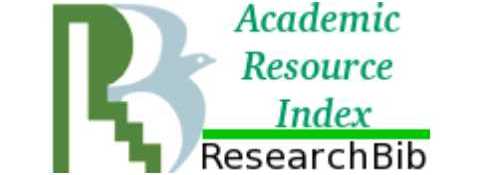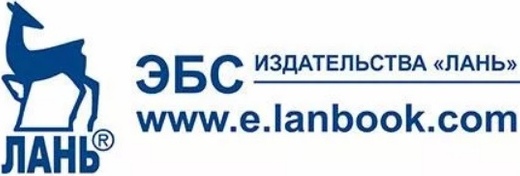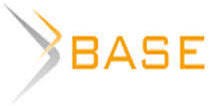THE ALGORITHM OF FORMATION OF THE MODERN SYSTEM OF "LEAN MANUFACTURING AT THE UNIVERSITY"
Abstract
The algorithm of the theory and practice for management of the formation of a system of lean production in a higher education institution is the podcast created for experts, leaders, and those interested in management, quality and lean production.
The relevance of forming questions of an algorithm of the theory and practice of management of the system of lean production in a higher education institution is dictated by the operating transformation of economic systems in the conditions of the innovative approaches, affecting a wide range of problems, threats and risks [1]. An integrated and consistent approach to the assessment of their influence on this process is a key to success of implementation of any program document which may result in the creation of the intra-university concept of "Lean University".
The article considers some questions of system approaches of improving the operating forms and methods of management of an educational system on positions of economical production (Lean Production). At the same time, it is expedient to define consistency not only by the growth in the value of the provided educational services, but also in the systemic growth of the efficiency of results of the productivity of the university activities.
The imposed problems can be resolved by means of transformation of university activities on the basis of positions of continuous and consistent improvement (Kaizen) of the educational process through realization of various disciplines, including
those that provide students with the development of economical consumption competencies.
Introduction
Issues of education are extremely important, because it is one of the most important areas, and one of the main courses of our development and general development in the world. It is impossible to achieve the development of future technologies without quality education, and Russia should be one step ahead in this area. There is a necessary groundwork in the field of universal education, which was created in Soviet times, but now, the basic platform of a quality education system, are “yesterday's” students, whose education falls on the shoulders of teachers, the welfare of which must be constantly improved, showing and paying maximum attention and care.
The growth of salaries and the strengthening of the material and technical base are primarily tools for the development and renovation of higher education, investment in the solution of the basic problem – training of professionals in demand in the labor market. Therefore, the formation of the theory and practice of lean production management system in the University is dictated by the current transformation of economic systems in terms of innovative approaches to network education in particular and the economy in general.
The problem of formation of lean production in the present / current educational system is determined by the fact that the educational system today is in a rather difficult condition, because the system is characterized by a number of contradictions. On the one hand, this is a decline in the level of basic training of graduates of secondary schools in Russia, and on the other hand, graduates of vocational schools (the same students who have been trained in the profession) must meet the very strict requirements of the employer, who is essentially a customer, a "client" of the educational institution.
The current state of the economy, which is under the influence of processes of crisis, without fundamental knowledge about the rationality of the behavior of subjects in extremely difficult economic situations is almost impossible. At the same time, the construction of a high-performance educational system of the university should focus on its stakeholders. These stakeholders include: the founder, represented by the Ministry of Education and Science of the Russian Federation; students – as consumers of educational services; employers – as consumers receiving graduates in the person of their employees.
Objective. At present, the experience of applying the principles of lean production in education is acquiring a special status, although in practice it is already known, but it is not yet being applied properly. But at the same time, today such an opportunity to create an effective infrastructure of scientific and educational centers and the inclusion of lean production in higher education programs is spreading, including NRU BelSU.
The conceptual and methodological form of the "Lean university (higher educational institution)" concept mechanism proposed by organizations has already become widespread and is being successfully implemented in the educational system of NRU BelSU, since such ideas of using lean technology in an educational organization are associated with the recognition of the ability of the education system to self-development not only with the inflow of energy, information and Finance from the outside, but also through the use of its internal capabilities and internal potential.
Materials and research methods. The problem of the research is based on the use of two information and analytical groups:
1) methods based on the synthesis of official state statistics;
2) methods based on the diagnosis and analysis of the indirectly selected information and publication database, namely, primary and secondary databases and publications.
Main body
Lean manufacturing is a philosophy based on its two aspects, on the one hand, exactly on time and autonomization (Jidoka), and on the other hand, it is formed by the changed consciousness of the people of enterprises, institutions and organizations. At the same time, any activity that does not create value for the product by consuming resources is a loss that must be minimized. Lean production implies the ability to achieve high results without attracting any "super resources" or additional resources.
The main role of the philosophy of lean production system in the present conditions is determined by the lack of alternatives in the market conditions in the direction of technological development, mandatory involvement in free economic relations of any stakeholder [Kuznetsov, La, 2015].
The principles of lean manufacturing are the foundations that must be followed by all, thus managers and employees, implementing lean manufacturing in the company, in the educational system. One of the main principles of the lean production system should be attributed, above of all, to the idea “think about the customer”. In the educational process, as well as in production, there are both external and internal suppliers, as well as customers (external customer – consumer receiving the finished product). But, despite the fact that lean production originally originated in the automotive industry, and was designed for the production sector, but its principles are quite applicable and effective for any sector of the economy (effective both in the shop, in the office, and in the warehouse), as they optimize the organization of any work in general. Moreover, the main provisions of the lean production system not only do not deny, but also largely coincide with the main provisions, objectives and strategy of the quality management system, the essence of which is determined by the willingness and ability to provide educational services that meet the ever-increasing requirements and expectations of consumers (the quality of educational services is considered as a priority condition for achieving the goals at lower costs).
Currently, the concept of "Lean manufacturing" (Lean) is widely used in enterprises in the technological processes of production According to statistics, from 60 to 80% of all costs incurred by enterprises in meeting consumer demand for manufactured products fall to administrative functions. It follows that the concept of" Lean manufacturing " has found its application in the offices of the service sector. At the same time, it should be noted that such a possibility of adaptation of lean production tools is contained in the possibility of its application in the education system, which is aimed at identifying, eliminating and preventing certain types of losses. The possibility of such adaptation is based on the existing and still developing new tools for the integration of lean production into the educational organization system, based on the actualization of the use of lean technologies in the following areas:
1) development of a modern integrated concept of lean production in education;
2) development of measures for the formation of:
- educational infrastructure;
- technologies of engaging of students in the educational process;
- regional system of training and advanced training of staff;
- incentive systems for personnel to use lean technologies;
3) formation of a sustainable model of lean behavior of the population based on:
- promotion of a culture of “economy” among students;
- initiation of processes of self-organization of society in the region on lean attitude;
4) development of information educational space. Selection of parameters for building a lean educational flow;
5) the introduction of a synergetic approach to the management of lean technologies through the use of complementary ways and mechanisms, thereby increasing the synergy effect itself.
At this point in time, the knowledge we have is clearly insufficient.
The Ministry of Education and Science of the Russian Federation, as a public authority, sets a strategic goal for the educational system – the economic development of the state and social stability in society. An important factor in achieving this goal is the formation of the country's human resources. Therefore, the development of a mechanism and the formation of a system of lean production in the University will contribute to the rational management of resources, which will inevitably lead to the implementation of the principles of "lean production". it is in the modern management system of an educational organization that a new approach and tools are needed, including motivational mechanisms.
Elaboration and formation of the system of management of lean technologies in education will allow to establish a model of behavior of the population in the consumption of educational resources, to form an understanding of the importance of the lean process and to increase the motivation of managers, teachers and students to the use of modern lean technologies. In this regard, it is advisable to emphasize the global problem of national education of the entire educational system of the Russian Federation – a lack of funding. The lack of financial resources is often the main reason for the shortage of qualified personnel, new educational technologies, modern equipment, etc.
Thus, the world practice has noted the main trends typical for the application of the concept of lean production, where lean production is used not in itself, but along with the elements of quality management, projects, changes, united by the term "operational excellence".
The very definition of "Lean production (manufacturing)" in the Russian translation is defined as "lean", "lean production". However, it should be noted that there are quite a lot of translation options. Among them, the most widespread were "production without loss", "lean thinking", "optimal production", "flexible production". In the future, the results of research in the framework of this issue were published by the authors under the title "Lean Thinking", which in the Russian version of the publishing house was called "the philosophy of lean production". But most often in the practice of management you can encounter the terms "lean management", "lean thinking" and just "Lean" [George, Michael, 2015; Womack, James, 2014]. There is also a tendency that sometimes refers to the whole concept using one of the elements of its system, for example: "JIT" – Just-in-time, "Kaizen".
In terms of terminology, in our opinion, it should be noted the thought of E. A. Erokhin that "most likely, when offering the term Lean production, John Krafchik had in mind the fact that in this new type of production there is nothing superfluous, especially since among the idioms associated with the word ― lean, there is, in particular, and such: capable of difficult and effective work (lean and mean)". In the future, the concept was subjected to analysis, adjustment, and in the early XIX century, M.L. George proposed a hybrid method "lean production plus six Sigma", combining the best of the two concepts [Vader, Michael, 2012]. In our opinion, the application of lean processes to optimize socio-economic activity is possible in the following sequence:
- lean – subject, i.e. the subject of economic relations existing on the basis of lean production (in the mode of economy);
- lean – organization at the level of microeconomics, which allows to increase the competitiveness of the object relative to other similar objects of activity not included in this value chain;
- lean – university at the level of economic systems, including regional, can significantly increase the production, financial, human potential in conjunction with the growth of the effectiveness of regional management;
- lean – state covers the macroeconomic level, allows you to build up or create a national competitive advantage. The initial stage of development of this concept can be considered lean government (lean government). This concept within the framework of global challenges has become relevant for our country [George, Michael, 2015]. Consequently, the conscious application of lean technologies is based on a fundamental understanding of their nature and importance in conjunction with the basic professional and economic competencies. Therefore, from the point of view of the proposed hypothesis, the basic level of lean-technologies application is the rational behavior of subjects of economic relations, in our case – University, i.e. "economic behavior". That, in fact, determines the economic behavior of man. Economic behavior, according To E. O. Evseeva, " behavior associated with the consideration of economic options. At the same time, the prerequisites of economic behavior are economic interests, economic thinking, economic consciousness, social stereotypes. Economic culture implies the obligatory presence of economic competence in some sources of "competence". Since economic competence is the most important component of economic culture, it is necessary to dwell on this concept. Large Encyclopedic dictionary interprets the concept of "competence "as follows:" from lat. Competo – to achieve; to correspond, to suit:
1) the scope of powers granted by the law, the statute or any other act to a particular body or official;
2) knowledge, experience in a particular field" [Cox, Jeff, 2012].
In our view, the concepts of competence and competency should be distinguished.
Competence – a concept that describes the aspects of perception, understanding, behavior behind the meaningful performance of work (based on professional knowledge, skills).
Competency – a concept derived from the management functions related to work, position, functional responsibilities. It reveals the scope of professional activity in which the specialist must be competent. Thus, the most important indicator of the development of any society is the economic dimension of its culture.
In General, summarizing the above arguments, it follows that the quality of life, civilizational prospects and the international authority of society depend on the readiness of its subjects, for example, the University, to be responsible for their material well-being, determined by the ability of the administrative apparatus to manage finances, to follow rational behavioral models in everyday life, to build and implement long-term plans related to the growth of the level of social capital of the University. The result of this behavior will be the economic culture, which will allow its bearer to demonstrate competitiveness in the labor market of University graduates, to use social elevators, to have increased mobility, to correctly formulate their life priorities. That means that "lean production" is a certain set of knowledge, skills and attitudes, primarily the administrative body, which are necessary for proper financial decision-making, achieving the most favorable end result [Pogrebnyak, P., 2013]. In other words, lean production at the University can be interpreted as a formed competence based on understanding and operational orientation in various intra-university production and economic processes – to a greater extent considered as a management system.
Regarding the local form of the educational process, it is advisable to note that the principles of lean production should be applied in the educational process in a comprehensive manner:
1) first, as an option, through the introduction to the educational process of the subject "Lean production", whose study will contribute to the formation of new thinking in students – i.e., the student begins to take a new look at any process and look in this process "loss" (problems), which, according to the concept of lean production, is present always and everywhere. All the studied is implemented in the workplace;
2) secondly, the teacher implementing the educational process, uses the tools of lean production in the organization of their workplace;
3) third, the elements and tools of lean production are used in the organization of the educational process of the educational institution.
In the field of education, it is quite difficult to determine who is an external customer: an applicant (student), his/ her parents or an employer. For example, some applicant wants to get a reprieve from the army, everything else does not matter to him, he does not have a goal to gain knowledge and become a good specialist. Obviously, it is impossible to focus on it as a customer, and if you build a flow of value creation in an educational institution, the customer will be the employer (in-system customer who receives a certain product for its further processing, i.e. in our case – a teacher who is an internal customer for teachers working in parallel or before him on subjects related interdisciplinary connections. The supplier's rule is to perform as it is convenient to the customer, react quickly and be attentive to his complaints and claims. This requires a full understanding of what the customer needs and an instant response to his requirements. People are the most valuable asset who think, learn, improve and contribute. In this regard, we have also established some problem areas for the employer:
1) first, it is basically a mismatch of the characteristics of the graduate production requirements;
2) and secondly, a long period of adaptation of the graduate in the enterprise.
Actually, the whole process of implementation of the lean production system at the University, which involves the introduction of elements and tools of "Lean production" in the activities of the institution, is aimed at leveling these contradictions.
Currently, NRU BelSU has everything necessary for successful implementation of the program to promote the implementation and successful application of the principles of lean production in the educational organization. Also, there is a number of factors that are essential for the successful implementation of the principles of lean production, including the active position of the top management of the University, the availability of necessary resources in the budget, the presence of a strategic vision and goals of socio-economic development of the University. In this regard, it is advisable to allocate significant costs for the successful implementation of the principles of lean production in the educational process, which in our opinion should include:
1) professional development, training / retraining of highly qualified specialists/teachers;
2) payment for services of external providers;
3) updating of the educational-classroom and laboratory Fund of the University;
4) etc.
Summarizing the study, the current state of the economy, which is under the influence of crisis processes, without basic knowledge about the rationality of the behavior of subjects in extremely difficult economic situations is impossible.
At the moment, the knowledge we have is clearly insufficient. Therefore, the development of a mechanism and the formation of a lean production system at the University will allow rational management of resources, which will eventually lead to the implementation of the principles of "lean production", because it is in the modern management system of the educational organization that new approaches, methods, tools and motivational mechanisms are needed. Such elaboration and formation of the system of management of lean technologies in education will determine the model of behavior of the population in the consumption of educational resources, to form an understanding of the importance of the process of lean and increase the motivation of managers, teachers and students to the use of modern lean technologies.
In this regard, it is advisable to clarify the existing global problem of national education of the entire educational system of the Russian Federation – the problem of lack of funding, since the lack of financial resources is often one of the main reasons for the shortage of qualified personnel, new educational technologies, modern equipment, etc.
Conclusion
World practice marked the main trends, typical for the application of the concept of lean production, where lean production:
- is used not by itself, but along with the quality management elements, projects, changes, United by the term " operational excellence»;
- applies to all sectors of the economy;
- is increasingly seen as a management system.
Today, there is little practical experience in applying the principles of lean production in education, but at the same time, at present, this possibility of creating an effective infrastructure of educational centers and including lean production in higher education programs at Belgorod State National Research University is becoming more and more widespread.
The conceptual methodology of the Lean university (higher educational institution) concept mechanism, created at the educational site of NRU BelSU, is successfully implemented, and this is a consequence of the fact that such ideas of using lean technologies in an educational organization are connected with the recognition of the ability of the education system to self-development not only due to the inflow of energy, information and finance from the outside, but also due to the use of its internal capabilities and internal potential.
The study showed the existence of such possibility of adapting existing and developed new tools for building lean production in the educational organization. In addition, there is an opportunity to adapt to the education system lean production tools aimed at identifying, eliminating and preventing certain types of losses.
The actualization of the use of lean technologies is possible in the following areas:
1) development of a modern integrated concept of lean production in education;
2) development of measures for the formation of:
- educational infrastructure;
- technologies of involvement of students in the educational process;
- regional system of training and advanced staff training;
- incentive systems for personnel to use lean technologies;
3) formation of a sustainable model of lean behavior of the population on the basis of:
- promoting a culture of "lean” among students;
- initiation of processes of self-organization of society in the region on the lean attitude;
4) development of information educational space through the selection of parameters for building a lean educational flow;
5) implementation of a synergetic approach to the management of lean technologies, based on the use of interrelated tools and methods.
The actualization of the use of lean technologies and their directions is determined by the additional formulation of the tasks of the educational institution, which should include:
1) first, against the background of the demographic "pit", having a low level of training of the applicant, at the same cost to prepare a qualified specialist;
2) secondly, it is the creation of an innovation-oriented algorithm of management theory and practice" as a podcast organized for specialists and managers, and those who are interested in the management system in terms of quality and lean production.
At present, the university (higher educational institution) has everything necessary for successful implementation of the program to stimulate the introduction and successful application of lean production principles, including a number of factors that are essential for the successful implementation of lean production principles, including the active position of the top management of the governance of the Belgorod region, the availability of the necessary resources in the budget, the presence of the strategic vision and goals of the university’s socio-economic development, and we don’t need big folios, which is not very clear what the results of our work will be at the end of the year.

















Reference lists
1. Womack, James, 2014. Lean production. How to get rid of losses and to achieve prosperity of your company / James Womack, Daniel Jones. Moscow: Alpina Publisher, 2014. 472 p. (in Russian)
2. George, Michael, 2014. Lean manufacturing plus six-Sigma in the service sector. How lean manufacturing speed and six Sigma quality help improve business / Michael George. Moscow: Mann, Ivanov and Ferber, 2014. 464 p. (in Russian)
3. George, Michael, 2015. Lean manufacturing plus six-Sigma in the service sector. How lean manufacturing speed and six Sigma quality help improve business / Michael George. Moscow: Mann, Ivanov and Ferber, 2015. 868 p. (in Russian)
4. Russell, Jesse. Lean manufacturing / Jesse Russell. M.: book on Demand, 2012. 170 p. (in Russian)
5. Womack, James, 2016. Lean production. How to get rid of losses and to achieve prosperity of your company / James Womack, Daniel Jones. Moscow: Alpina Publisher, 2016. 472 p. (in Russian)
6. Womack, James, 2014. Sale of goods and services by the method of lean production / Womack James, Daniel Jones. Moscow: Alpina Publisher, 2014. 264 p.
7. Vader, Michael, 2012. Lean manufacturing tools. Mini-guide to the implementation of lean manufacturing techniques / Michael Vader. Moscow: Alpina Publisher, 2012. 125 p. (in Russian)
8. George, Michael, 2015. Lean manufacturing plus six-Sigma in the service sector. How lean manufacturing speed and six Sigma quality help improve business / Michael George. Moscow: Mann, Ivanov and Ferber, 2015. 659 p. (in Russian)
9. Coke, J., 2012. New goal. How to combine lean manufacturing, six Sigma and constraint theory / J. Cox, D. Jacob, S. Bergland. Moscow: Higher school, 2012. 400 p.
10. Cox, Jeff, 2012. New goal. How to combine lean manufacturing, six Sigma and constraint theory / Jeff Cox, Di Jacob, Susan Bergland. Moscow: Mann, Ivanov and Ferber, 2012. 224 p. (in Russian)
11. Kuznetsov, L. A., 2015. Fundamentals of the theory, design, production and repair of electric tools / L. Kuznetsov. Moscow: the light and food industries, 2015. 312 p. (in Russian)
12. Pogrebnyak, P., 2013. Lean production. Formula of efficiency / S. Pogrebnyak. Moscow: Triumph, 2013. 239 p. (in Russian)
13. Russell, Jesse, 2012. Lean manufacturing / Jesse Russell. Moscow: VSD, 2012. 648 p. (in Russian)